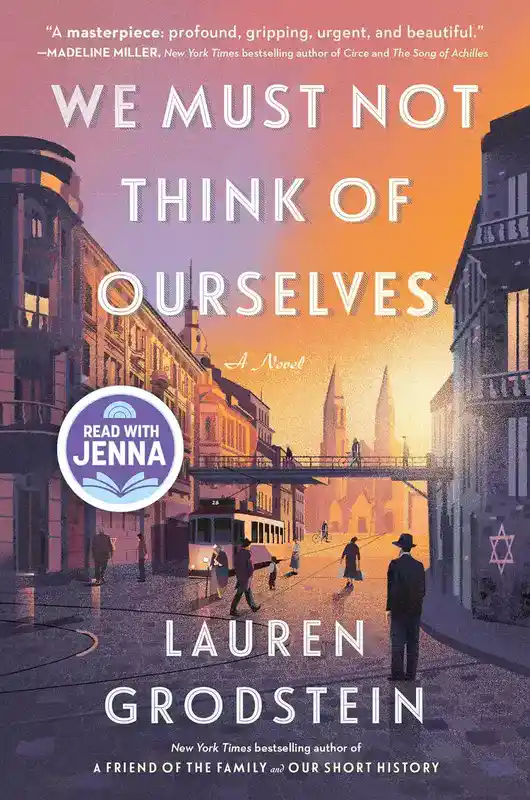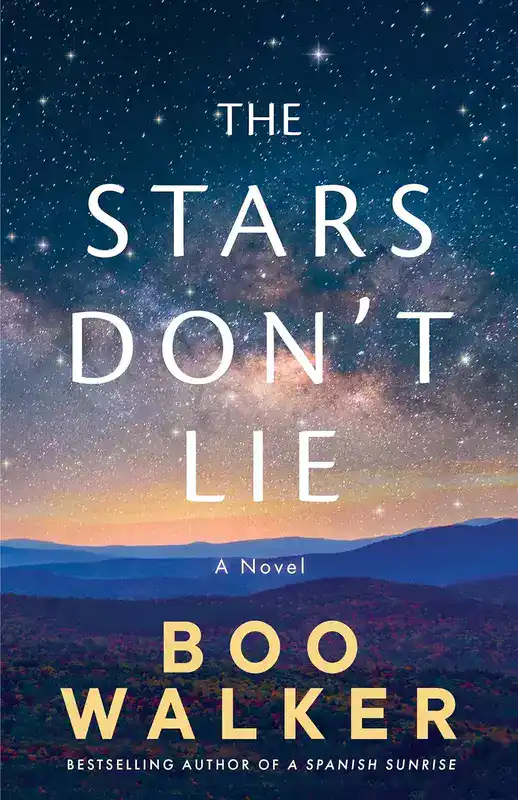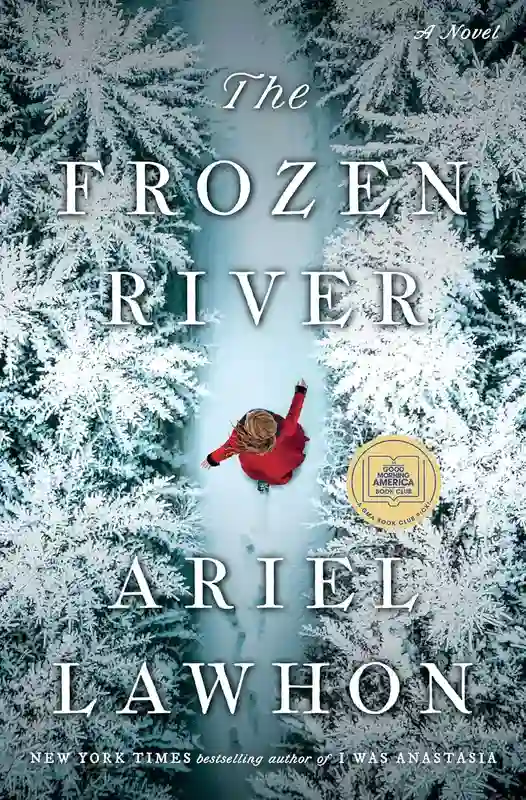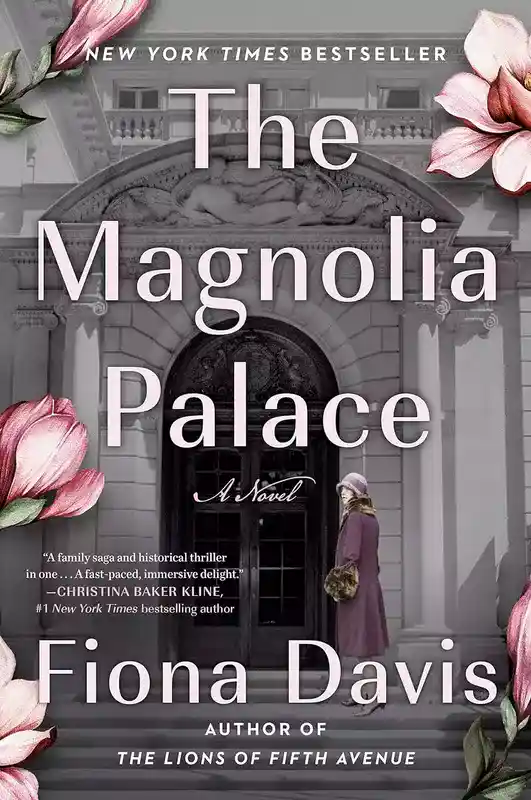This post may contain affiliate links. Read more here.
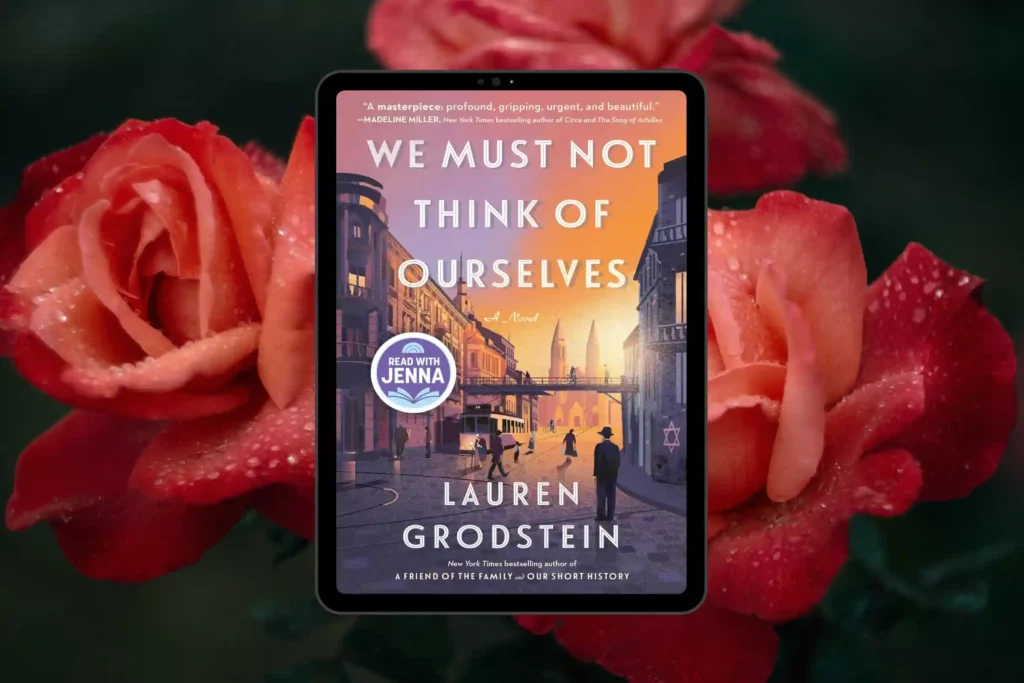
Book club questions for We Must Not Think of Ourselves by Lauren Grodstein explore the themes of love, resilience, sacrifice, and the human spirit in the face of adversity.
The book was really easy to read and had interesting and challenging situations. I had to keep reminding myself it’s historical fiction. Despite my tears, I appreciate the author for reaffirming the truths, pain, and sacrifices endured by these families, ensuring that we never lose sight of their significance.
This book is also Read with Jenna’s book club pick of this month! For a complete list of celebrity book club picks of December 2023, click here!
What are your thoughts on this novel? ✨
We Must Not Think of Ourselves by Lauren Grodstein
In this blog post you will find the discussion questions for We Must Not Think of Ourselves by Lauren Grodstein. I’ve also added some additional recommendations worth reading below.
The discussions may delve into the characters’ experiences in the Warsaw Ghetto during World War II, examining their relationships, choices, and the profound impact of a secret archive dedicated to preserving their stories.
Have an amazing discussion with your book club! ✨
About the Author | Book Club Questions
About the Story
We Must Not Think of Ourselves follows the story of Adam Paskow, a prisoner in the Ghetto who is approached to join a secret group of archivists. This group is dedicated to preserving the lives and stories of Jewish occupants in the face of Nazi oppression.
As Adam collects testimonies from friends and neighbors, he forms a deep connection with his flatmate Sala. Their love becomes a vital source of strength as they navigate the challenges of confinement. However, when Adam discovers a potential escape, he faces a difficult choice: whom to save and at what cost.
The novel is inspired by the true historical project called Oneg Shabbat, revealing stories of endurance, love, determination, and sacrifice during a tumultuous time.
About the Author
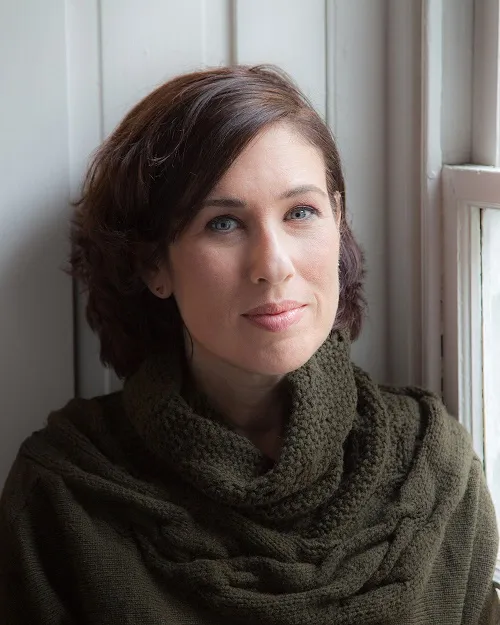
Lauren Grodstein is a best-selling author known for her five novels, including the popular We Must Not Think of Ourselves, a book chosen for the Read with Jenna selection.
She has also authored the New York Times bestseller A Friend of the Family and The Explanation for Everything, recognized as the Washington Post Book of the Year. Her work has been translated into multiple languages, such as French, Turkish, German, and Hebrew.
Beyond novels, Lauren has written essays and reviews that have been widely published. She currently teaches creative writing in the MFA Program at Rutgers University-Camden and resides in New Jersey with her husband and children.
Book Club Questions for We Must Not Think of Ourselves
Disclaimer: the following discussion questions contain spoilers, so proceed with caution if you haven’t finished the book yet.
- The novel is inspired by the real-life Oneg Shabbat project, which aimed to preserve the stories of Jewish occupants in the Warsaw Ghetto during World War II. How did this historical context enhance your understanding of the characters’ experiences in the book?
- Adam Paskow is faced with the choice of joining the group of archivists led by Emanuel Ringelblum. How did his decision impact the trajectory of the story? What would you have done in a similar situation?
- The book explores the theme of love and defiance in the midst of unimaginable circumstances. How did the relationship between Adam and Sala contribute to the overall narrative? Do you think their love story was essential to the novel?
- Why did Emanuel Ringelblum embark on creating the Oneg Shabbat project, and how did its objectives evolve throughout the twists and turns of the novel?
- Considering the harrowing conditions of the ghetto, why do you think more inhabitants didn’t attempt to escape? What factors might have influenced their decisions to stay?
- In the intricate web of survival, everything in the ghetto becomes a trade. What are some of the creative economic systems employed by the Jewish residents to navigate their challenging circumstances?
- The author vividly describes the living conditions in the Warsaw Ghetto and the challenges faced by its inhabitants. How did these descriptions affect your emotional connection to the characters and the story?
- The character of Adam is a language teacher who believes in the power of poetry. How does poetry and literature play a role in the characters’ lives and in the novel as a whole?
- The book has received praise for its portrayal of the human spirit’s endurance. Can you identify moments in the story where characters displayed resilience in the face of adversity?
- At the heart of ghetto life, children play a significant role. How does their presence shape the dynamics of the community, and in what ways are they the driving force behind resilience?
- Henryk Duda, Kasia’s father, is a complex character. Reflect on your feelings toward him. Was his affection for Adam genuine, or did he view Adam as a means to his own ends?
- The affair between Sala and Adam unfolds within the same apartment as her family. Do you consider their actions immoral, or do you believe morality can take on different forms in extraordinary circumstances?
- Contemplate Adam’s decision to switch out the photos in the kennkartes. Were you disturbed by his choice, or can you empathize with the difficult decisions he faced? Would you have made the same decision?
- Szifra’s loyalty to her brothers is unwavering. What elements define her attitude toward them, and why do you think she chooses not to abandon them despite the hardships?
- Despite not having children of his own, Adam assumes various paternal roles. Explore the nature of his fatherly influence on Szifra, her brothers, and Sala’s boys. How does he use poetry as a tool for imparting lessons?
- Adam discovers a possible escape from the Ghetto, forcing him to make an unbearable choice. How did this dilemma impact your perception of Adam as a character? Were you surprised by his decision?
- One of the readers mentioned the question, “Is the pen mightier than the sword?” How does the act of documenting the stories of those in the Ghetto contribute to the larger themes of the novel?
- Nowak, the guard who helps Adam, remains a mysterious character. What impressions do you have of his true nature, and how does his unexpected assistance impact your understanding of him?
- In a pivotal moment, an Oneg Shabbat archivist criticizes the moral decay among Warsaw’s Jewish citizens exposed by the ghetto. Share your thoughts on his speech and how Adam reacts to this harsh revelation.
- Considering Kasia’s fate, do you believe she would have joined Adam in the ghetto? Could they have successfully escaped before the war escalated?
- The novel has been described as both gut-wrenching and hopeful. How do you reconcile these seemingly conflicting emotions, and what elements in the story contribute to the overall sense of hope?
- Lauren Grodstein introduces a love story within the historical context of the Holocaust. How did the inclusion of this romantic element impact your reading experience?
- The author received praise for fleshing out the main characters. Were there specific characters whose stories resonated with you the most, and why?
- Henryk Duda, Kasia’s father, is a complex character. Reflect on your feelings toward him. Was his affection for Adam genuine, or did he view Adam as a means to his own ends?
- The affair between Sala and Adam unfolds within the same apartment as her family. Do you consider their actions immoral, or do you believe morality can take on different forms in extraordinary circumstances?
- One reviewer mentioned a potential historical inaccuracy regarding the mention of a transistor radio. How did historical accuracy impact your reading experience? Did you notice other historical details that stood out to you?
- Do you think Sala’s husband was aware of the relationship between her and Adam? Explore the dynamics of their marriage and the potential clues within the narrative.
- Reflect on a time in your life when every option seemed like a compromise with no clear path to do right by everyone. How did that experience make you feel? How does the characters’ constant struggle with compromised choices broaden your understanding of life during the Holocaust in this story?
- The book touches on the Oneg Shabbat Archive and the importance of remembering historical events. How does the act of preserving stories contribute to our collective understanding of history?
- Overall, in what ways did the novel deepen your understanding of the Holocaust, particularly focusing on the experiences of those living in the Warsaw Ghetto?
Additional Recommendations
Hope you enjoyed the book club discussion questions and reading guide for We Must Not Think of Ourselves by Lauren Grodstein.
Here are some more of my book club recommendations related to this book, along with their synopses:
The Stars Don’t Lie by Boo Walker
A man who thought he put his shattered past behind him embarks on a reflective journey home in a heartfelt novel by the bestselling author of The Singing Trees and A Spanish Sunrise.
Haunted by a tragic decision he made twenty years ago, veterinarian Dr. Carver Livingston has not once returned to his Vermont hometown. Now his parents’ impending divorce and his mother’s plea for support lure Carver to a reluctant homecoming. His mission: sweep into Teterbury, save a marriage, and get out before anyone else from his past knows he was even there. Fate has other plans.
It’s hard to hide from former friends. Harder still to fight old feelings for the crushing and beautiful high school soulmate whom he dreams of pursuing again. And Mrs. Cartwright, his fragile English teacher, who once pulled Carver out of sadness. She taught him to always look up and to see life’s grander perspective in the stars. Now it’s Carver’s turn to help Mrs. Cartwright find those bright lights in the dark.
Against his need to leave, Carver decides to stay longer, as he, his mother and father, and Mrs. Cartwright are all at turning points in their lives. Hope is not lost. If they look up, they’ll see that tonight, the stars still shine.
The Frozen River by Ariel Lawhon
From the New York Times bestselling author of I Was Anastasia and Code Name Hélène comes a gripping historical mystery inspired by the life and diary of Martha Ballard, a renowned 18th-century midwife who defied the legal system and wrote herself into American history.
Maine, 1789: When the Kennebec River freezes, entombing a man in the ice, Martha Ballard is summoned to examine the body and determine cause of death. As a midwife and healer, she is privy to much of what goes on behind closed doors in Hallowell. Her diary is a record of every birth and death, crime and debacle that unfolds in the close-knit community. Months earlier, Martha documented the details of an alleged rape committed by two of the town’s most respected gentlemen—one of whom has now been found dead in the ice. But when a local physician undermines her conclusion, declaring the death to be an accident, Martha is forced to investigate the shocking murder on her own.
Over the course of one winter, as the trial nears, and whispers and prejudices mount, Martha doggedly pursues the truth. Her diary soon lands at the center of the scandal, implicating those she loves, and compelling Martha to decide where her own loyalties lie.
Clever, layered, and subversive, Ariel Lawhon’s newest offering introduces an unsung heroine who refused to accept anything less than justice at a time when women were considered best seen and not heard. The Frozen River is a thrilling, tense, and tender story about a remarkable woman who left an unparalleled legacy yet remains nearly forgotten to this day.
For my book club questions for this book, click here!
The Magnolia Palace by Fiona Davis
Fiona Davis, New York Times bestselling author of The Lions of Fifth Avenue, returns with a tantalizing novel about the secrets, betrayal, and murder within one of New York City’s most impressive Gilded Age mansions.
Lillian Carter, a once-renowned artist’s model, faces a life upheaval after losing her mother to the 1919 Spanish flu outbreak. Jobless and on the brink of scandal, she seizes an opportunity to work at the Frick mansion. As a private secretary to Helen Frick, she becomes entangled in a web of romance, stolen jewels, and family drama with life-or-death stakes.
Decades later, English model Veronica Weber aims to advance her career at the converted Frick residence, now a museum. Dismissed from a Vogue shoot, she discovers hidden messages that, along with intern Joshua, lead them on a hunt to solve financial woes and uncover the truth behind a long-buried murder in the Frick family.
For my book club questions, click here!
Happy reading! ❤️
